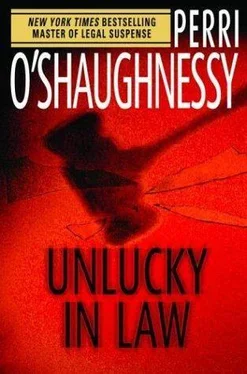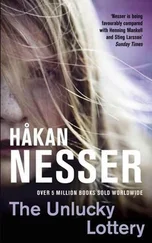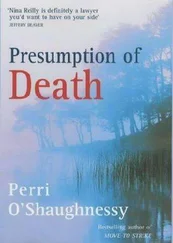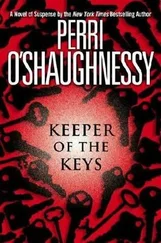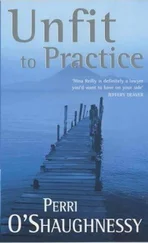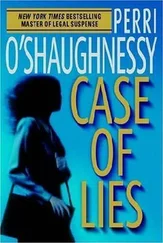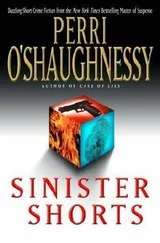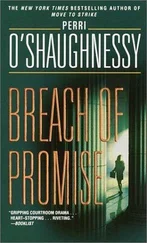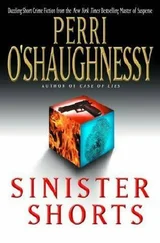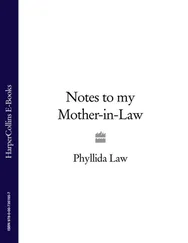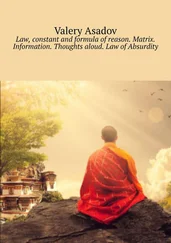“Not with his parents?”
“They died in the revolution.” His body, until then managing a slow tap of agitation, practically turned inside out as he decided to find himself a better position on the wire chair, failed, and stood up.
“He was a good man, my father,” Zhukovsky said firmly. He began pacing the deck, hands in his pockets. “Sociable, well liked. Loved to talk. He could make friends with anyone.” A fleeting nostalgic smile died on his face. “My parents had a happy marriage,” he went on, tacking in another direction. “After Mother died in 1971, Papa would go to that cemetery. Visit her. He got to know the workers over there. They had their children late in life. Christina was born in 1960 and I was born in 1964.”
Paul could see Zhukovsky enjoyed talking about his family history, but he wasn’t the only one having problems figuring out how Papa Zhukovsky related to their present-day murder, other than the fact that his grave offered a convenient receptacle for the victim. He wondered, as he had before, if there had been some kind of symbolism in the daughter ending up buried with her father.
Nina’s client claimed Alex had something to do with it. He was a logical suspect, considering he knew both of the dead people and had the strongest emotional connection to them, but what kind of a symbol might he mean by the gesture? Paul had thought about it several times, and discussed it with Nina, but neither of them had the slightest idea.
He had lied about Christina, saying he had no idea where she had gone when she took a leave from the university early this year. Why? A normal instinct to keep private things private?
“Getting back to this conference,” Paul said, “how many of the participants did you know before they came?”
“These were people from all over the world. Christina knew many of the participants. I knew a few.”
“So she did have extensive contacts with the Russian community and with Russia?”
“She was involved locally,” the professor said. “We were raised in the American Russian Orthodox Church and have many close ties there. She found people through our church, which is a gathering place for many Russian nationals, and through our cultural association.”
“I never know what people mean when they say that. What do these organizations do exactly?”
“The main one that’s still active in this area is the Russian Alliance. They raise money for good causes. They allow others with similar heritage to meet and perhaps practice some old traditions.”
He was leaning against the railing, and had taken up thrumming with his right hand. Noticing, he put it in his pocket, took it out again, checked his watch, and sat back down in his chair.
Silence fell. Paul had asked about everything but the crucial thing, and he still wasn’t sure how to approach it. He took off his sunglasses and squinted out at the windswept sea plain.
Zhukovsky, no fool himself, was waiting anxiously for Paul to get down to it. He knew what Stefan had told Nina and Paul. Deano had leaked all that months before.
“Professor Zhukovsky, you know that Mr. Wyatt was arrested after digging up the remains of your father,” Paul finally said.
“He admits that? He’s going to admit that in court? I thought…”
“He’s not going to testify, I believe,” Paul said.
“Why did he kill Christina? Why? I’ve asked myself that over and over. It’s crazy. How did he know her? Has he told you that?”
“He pled innocent to the murder of your sister. But he admits digging up the grave of your father.”
“It’s all the same,” Zhukovsky said with disgust. “I’m sick of this. You’re not going to tell me anything, I understand. So what else do you want to know? Let’s get this over with.”
“On that Saturday night, April twelfth and into the morning of the thirteenth, the night the police discovered your sister’s body, how did they know you were related to the man buried in the cemetery?”
“I signed the logbook at the cemetery when my father was buried. I suppose they got my name from that.”
“And why did you hire Mr. Wyatt to dig up the bones of your father?”
Alex Zhukovsky drew himself up. All the restive tapping of his fingers on his knee, the twitching of his foot, stopped. His neck-ah, his neck had taken on the hue of a tequila sunrise, heavy on the grenadine.
“As I’ve told the police and said in a deposition, I didn’t. Is that why you came? To drag me into this? Because you don’t want to do that.”
“Stefan Wyatt collected your father’s bones,” Paul said. “That’s a fact.” He consulted his notes. “He says you hired him.”
“Yes! Yes! He says that! He’s a liar! Does he say I hired him to kill Christina? Because I’ll kill him if he has the audacity to suggest such a thing!”
“Calm down, Professor. He only claims that you hired him to get the bones.”
Zhukovsky’s eyebrows beetled into one. “I didn’t. And don’t try to claim I did or I’ll sue. Tell your boss that. I would never hurt my sister.”
“But why bury her in your father’s grave?” Paul asked. “That’s the thing that keeps me awake at night. There were other graves nearer the street. So why that one? Was he involved in something special, something important, your father, Constantin Zhukovsky?”
“My father was no one, an entirely ordinary man. A baker, for God’s sake! Let him rest in peace!” The flush test had stopped working. Zhukovsky was far too excited by now.
“He had been dead for twenty-five years,” Paul persisted. “Something or someone made Mr. Wyatt go dig him up. Obviously, there was a point to the exercise. Unless Wyatt’s just nuts. Do you think he’s nuts?”
“I don’t know the man.”
“You never met him?”
“Never. I saw him brought into court, that’s it.”
“No theory about why he would dig up your father, then.”
In keeping with his professorial disposition, Zhukovsky could not resist the opportunity to give his sister’s death a spin. Paul hoped something in what he said would give them insight into his own motives, which remained tantalizingly elusive. “Christina must have known Wyatt, and took him along when she visited our parents’ graves. She always brought cut roses. Sometimes, she cried.”
Thus he implied that Stefan might have been his sister’s secret lover, Paul supposed.
“And he,” Alex Zhukovsky, swept away with his own imagination, went on with alacrity, “that bastard, thought of the grave when he had killed her. And then possibly, while burying my sister’s body, when he came upon the casket of my father, he looked inside, saw the medal worn by my father upon his burial, grabbed it, and grabbed the-rest without thinking.”
These convolutions didn’t seem to convince even the professor, and yet he seemed sincerely puzzled about something, to be struggling to explain the inexplicable. Part lies, part truth, Paul thought, but he couldn’t sort it out. Who was lying, Zhukovsky or Stefan?
“Yes, the medal, I wanted to ask you about that,” Paul said.
“It was my father’s. What else is there to say?”
“What was it?”
He squirmed. “A military honor from the early part of the twentieth century.”
“You’re an expert in Russian history, correct?”
“I am.”
No expert in modest manners, however, Paul noted. “You know your military history, no doubt.”
“It’s all military history in Russia.”
“You weren’t curious enough to do some research on this medal?”
“During this last year I’ve learned it’s called the Order of Saint George, First Class. It’s solid gold with precious inlays, an original historic medal, with some special features. A Carmel antiques expert appraised it for several thousand dollars. Bad news for your client. I understand its theft constitutes a separate felony.
Читать дальше
